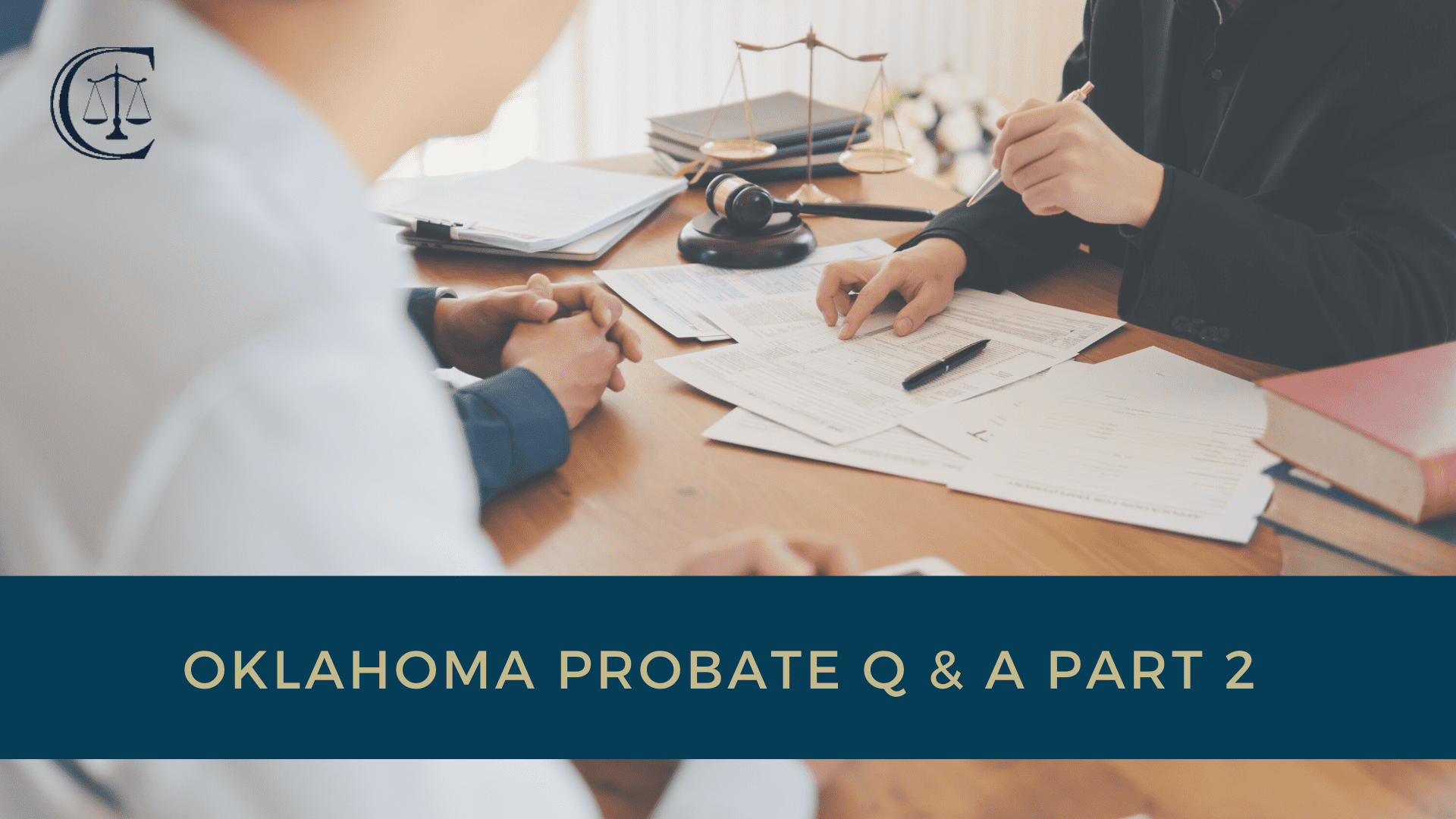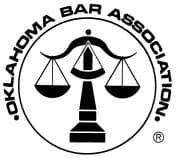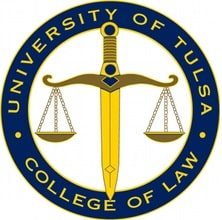
19 Oct Oklahoma Probate Law Q & A Part 2
For clients whose loved one has passed away, dealing with the deceased person’s personal affairs, real estate and other property can be quite a challenge. Even though the picture of what it means to probate an estate is painted as something to be avoided at all costs, this is not necessarily the case.
In our last blog, we gave you a basic understanding of probate law through questions 1-6 in our Oklahoma Probate Law Q & A. Gain a greater understanding through the following questions and answers, 7-14. Here’s our Oklahoma Probate Law Q & A Part 2.
7. Can I still use a power of attorney after the death of my spouse or family member?
No. When a person dies, the power of attorney immediately terminates. The attorney-in-fact named in the power of attorney document has no legal authority to transact business on behalf of the decedent. After someone passes away, the authority to act on behalf of the decedent shifts to the court-appointed executor or the successor trustee of a trust.
8. Will bank accounts be frozen?
Banks and other financial institutions will freeze accounts that are titled in the decedent’s name alone. You will need a death certificate, and letters of authority from the probate court to have access to the account. A joint account will not be frozen and will remain fully and immediately available.
9. Can I access a safety deposit box?
If the decedent is the only registered owner of the safety deposit box, then you will need to obtain a court order from the probate court to prove you are the Personal Representative in order to gain access to the box. However, the bank should allow you access to determine if there is a Last Will & Testament or Trust in the box. If the safety deposit box is in two names, the surviving owner will have access to the box.
10. What are the costs and fees associated with a probate administration?
The actual costs and fees will depend upon the size of the estate, the nature of your assets, and the attorney fees. Additional issues may arise that could increase the cost of administration, including Will contests, estate tax audits, or the transfer of difficult assets such as closely held family businesses, or out-of-state real estate.
11. How long will Probate take?
Typically, the estate administration process takes approximately six months to one year. More complicated estates may take longer.
12. Who files the Petition?
The Petition must be filed by an “Interested Person” as defined by statute. Often it is the Personal Representative named in the Will. If no Will, it is often a son, daughter, or another person that would inherit under the law.
13. What is the role of the Personal Representative?
The Personal Representative of an estate is the person who is responsible for the administration of the estate. They must identify and evaluate the assets, identify and pay all liabilities, sell the assets that need to be sold, and final income tax and estate tax returns prepared and filed. Finally, the PR distributes the assets in accordance with the terms of the Will or Statute if there is no Will.
14. What does a Personal Representative get paid?
State Statute sets the executor’s fee. The executor’s fee is a percentage of the value of the assets of the estate. There is a fee schedule upon which the executor’s fee is determined on the value of the assets of the estate depending upon the size of the estate.
In Conclusion
Each estate and family situation is unique. Most people faced with handling the estate of a loved one have not done so before. It is best to work with an attorney familiar with the process to guide you through. If you do not, the process will take longer, you may frustrate the Probate Court, and you will likely make mistakes. You can reduce stress and the burden placed on you, by finding the right attorney to work with. We at Gary W. Crews, PLLC are experienced in Probates.
If you are the Personal Representative, you likely take this role very seriously and realize that gathering the estate assets, paying the creditors, and dividing up all the property and money, down to the last detail is important to the family and family relationships. This is true whether the estate is large or small. Although the deceased person is gone, the family must continue to live together and get along. Your attorney should be sensitive to this also, along with the legal requirements and nuances.
I will be happy to talk with you about handling an estate after death and planning for these issues in advance. Please contact me.
THIS DOCUMENT IS NOT LEGAL ADVICE AND MAY NOT BE DEEMED TO BE LEGAL ADVICE. IT DEALS ONLY WITH THE MATERIAL SPECIFICALLY DISCUSSED HERE. YOUR SITUATION WILL BE BASED ON YOUR OWN FACTS AND CIRCUMSTANCES. YOU ARE ENCOURAGED TO SEEK THE ASSISTANCE OF YOUR OWN LEGAL COUNSEL AND TAX ADVISOR.







